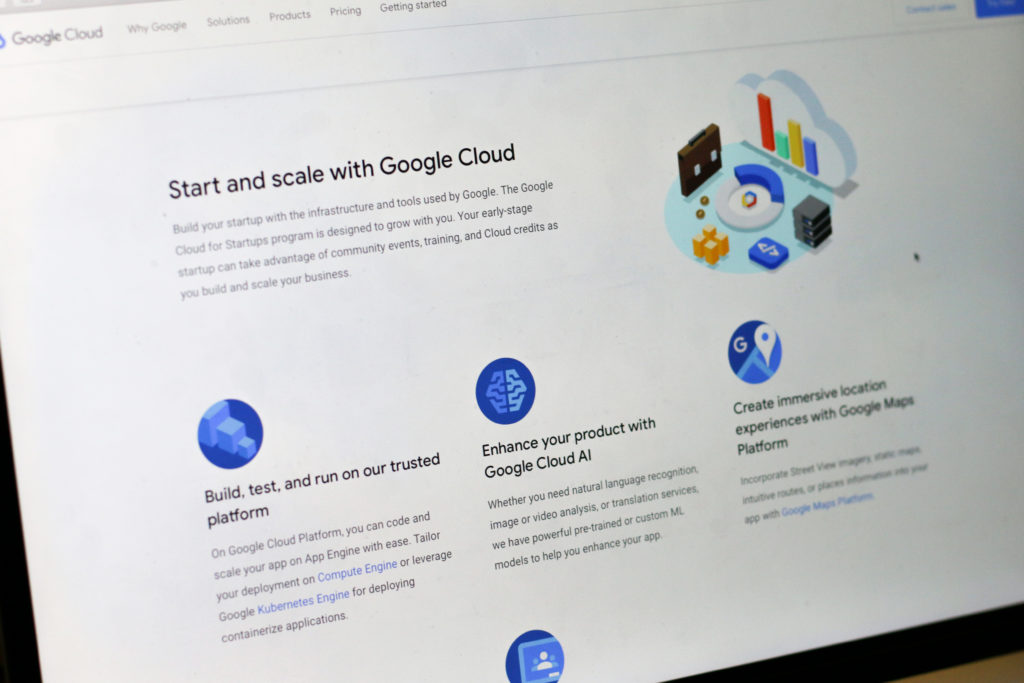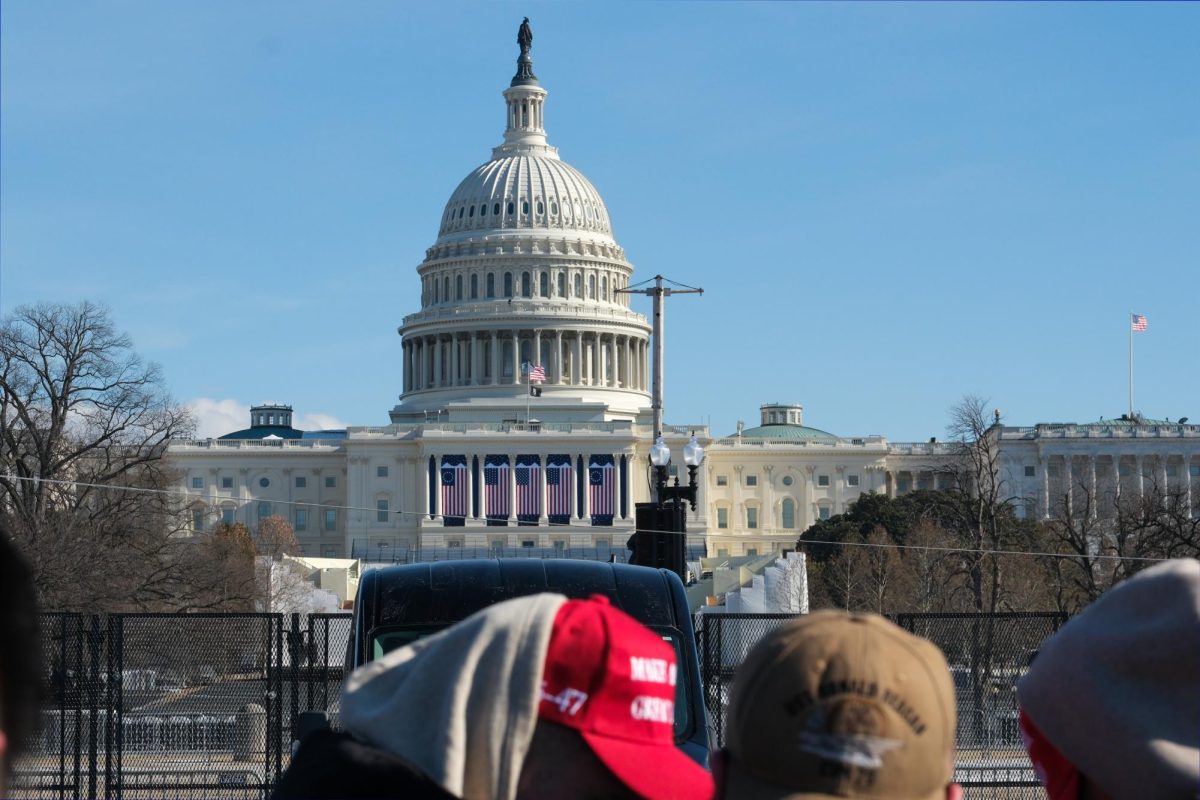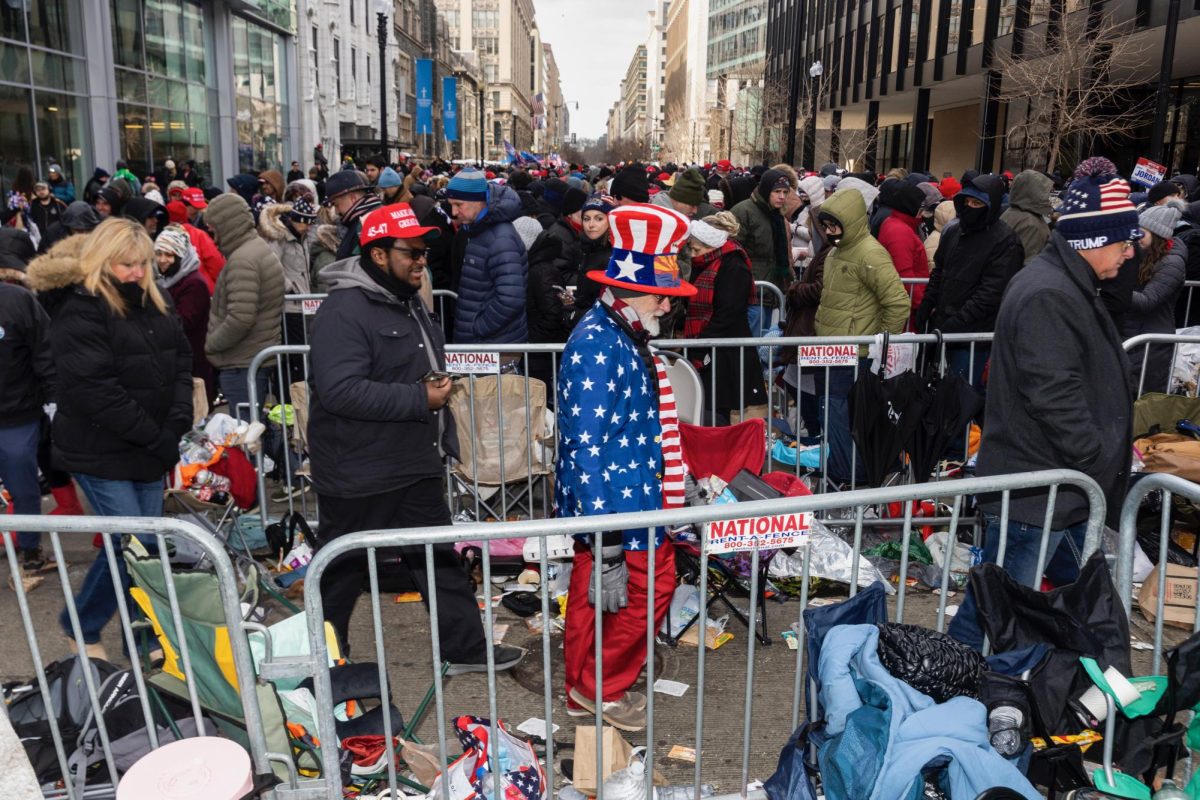Students competing to showcase their original business ideas at GW’s annual startup competition now have their eyes on the contest’s largest-ever prize.
Google Cloud donated more than $300,000 worth of software to the New Venture Competition this month, allowing the 36 teams of semifinalists remaining in the contest to use the business planning software as the tournament moves along. The donated Google Cloud for Startups software, including an app testing platform, translation services and Google Maps information, will help cut teams’ expenses and give them an edge as they develop new ideas, officials said.
The software is valued at about $341,000, boosting the total prize pool for top entrepreneurs to nearly $800,000 – the most in the competition’s history. Last year, winners competed for about $300,000 in money and in-kind prizes.
Lex McCusker, the director of the New Venture Competition, said the first-place winner of the competition, who will be selected at the end of next month, will receive the Google Cloud “Surge Package,” including $100,000 in “services and benefits.” The eight finalists who weren’t crowned winners will each receive the “Spark Package,” worth $20,000, while 27 semifinalists will each receive the “Start Package,” worth $3,000.
“These free services can help a fledgling startup get off the ground,” he said in an email. “Startups are often strapped for cash, so these prizes will be a big boost for GW’s best student startup teams.”
He said staff in the Office of Innovation and Entrepreneurship worked with Google to secure the gift, which was finalized in mid-March. The gift is not recurring, but McCusker said he hopes the donation will be the beginning of a “longer-term” relationship with Google Cloud.
“We routinely seek new sponsors of cash and in-kind prizes for the competition,” McCusker said. “The prizes put our teams on more solid footing for the next phase of their development.”
Sophomore Sam Bunger, a computer science major and a semifinalist in the New Venture Competition, said his team currently pays $30 a month for the servers that host the web application that the team is developing. The application allows businesses to create their own voice tools that can be downloaded on Google Home or Amazon Alexa.
As the business gains more users, the servers become more expensive to host more people – which is where Bunger’s group could use the credits from Google, he said. With the money saved, Bunger said the team could redirect its spending money on sales or marketing for the application.
He said the competition will likely become more fierce because of the added prizes.
“We have to hustle because this has the potential to be a lot more than it was before,” he said. “It went up a level now.”
Freshman Jonathan Lau, a semifinalist studying biomedical engineering, said Google’s G Suite software – which includes access to email, documents, spreadsheets, calendars and more – would allow his team to communicate with members more easily. His team is developing a table accessory for wheelchairs to help users become more independent.
He said the additional prizes make the contest “a little bit” more competitive than it was previously, but his team is still driven by the desire to create the wheelchair tool.
“We’re in the social track,” he said. “It’s never really been about the prize money offered, but it’s a plus.”
Senior Lily Jiang, a semifinalist studying philosophy, said her team would use the Google Maps function offered for finalists. Her team hopes to create an app showcasing local public art, like pop-ups and street murals.
“That’s our main feature, is being able to offer that location-based service, so that is mainly what we would use that for,” she said.





